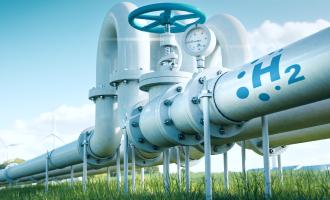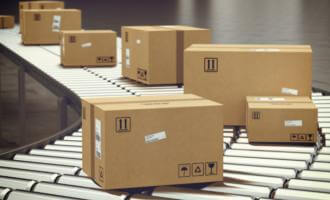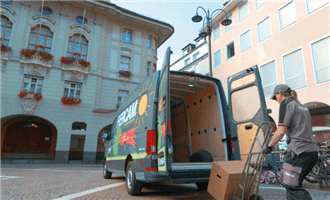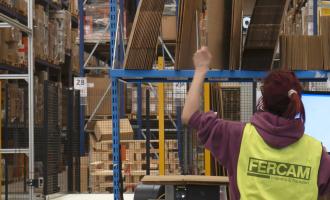
26 February 2021 - by: Silvia Pedrotti
The Brenner border restrictions contradict European Rights
Tyrol is pursuing a policy of restrictions that aims to systematically limit heavy goods traffic in transit, while Tyrolean traffic to and from the area is largely exempt from the measures. An advisory legal opinion commissioned by the Bozen Chamber of Commerce examined the extent to which the new driving ban is compatible with European law.
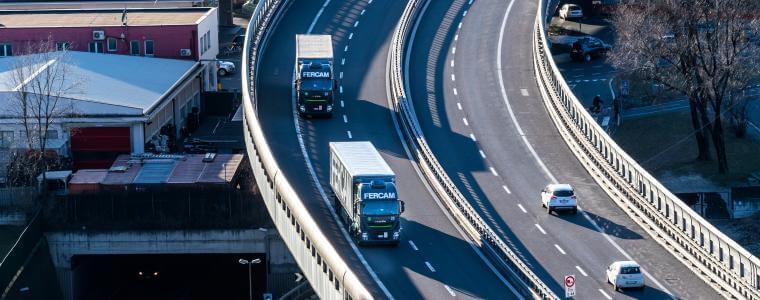
Is there a possibility to find a solution that is shared by the member states? And do the restrictions imposed by Tyrol really achieve the objective of reducing emissions?
For several years now, Tyrol has been tightening its restrictions on heavy goods vehicles. These decisions are the result of analyses that have shown that the maximum limit values for nitrogen dioxide (NO2) in the atmosphere have been exceeded, particularly in the area of the Inntal Autobahn A12 and the Brenner Autobahn A13.
There are currently three types of limitations:
In addition to the economic factors, there is a "boomerang" effect created by the recent ban on night-time transit, which, by shifting traffic to daytime hours, coincides with the already heavy light traffic of commuters and tourists. This has the opposite effect to the one intended: a funnel effect during daylight hours and an increase in emissions due to the stop & start of drivers.
In the last few words of the conference, the Bolzano Chamber of Commerce expressed strong doubts about the motivation behind all the Austrian decisions: "As far as the environmental objective of the ban is concerned, the question arises as to whether further restrictions are permissible in the face of significantly improved air quality data that practically satisfy European requirements. The sectoral driving ban is not only a problem for the regions or nations bordering Tyrol, but also represents a violation of the fundamental principle of free movement of goods within the EU".
For several years now, Tyrol has been tightening its restrictions on heavy goods vehicles. These decisions are the result of analyses that have shown that the maximum limit values for nitrogen dioxide (NO2) in the atmosphere have been exceeded, particularly in the area of the Inntal Autobahn A12 and the Brenner Autobahn A13.
There are currently three types of limitations:
- Prohibitions for the safeguarding of emissions: traffic is only possible with Euro VI type vehicles (NOx emissions not exceeding 0.4 g/kWh), or with electric or hydrogen powered vehicles.
- Prohibitions on sectoral traffic: limits on the passage of vehicles loaded with certain commodity classes (paper and cardboard; liquid mineral oil products; cement, lime and plaster; pipes and hollow profiles; cereals). Vehicles with electric or hydrogen propulsion and euro VI vehicles are exempt, but only if registered after the 31st of August 2018.
- Prohibitions on night-time traffic: since the 1st of January, Euro VI vehicles can no longer be operated at night (apart from a few exceptions linked above all to the type of transport), specifically: from the 1st of May to the 31st of October: from 22.00 to 05.00 and on Sundays and public holidays from 23.00 to 05.00; from the 1st of November to the 30th of April: from 20.00 to 05.00 and on Sundays and public holidays from 23.00 to 05.00.
Analysis from a legal point of view from the conference on the 9th of February
On the 9th of February, the Chamber of Commerce in Bolzano requested a legal opinion on the issue of driving bans for heavy goods vehicles in Tyrol. For this purpose, the professor of EU law at the University of Innsbruck, Peter Hilpold, was consulted. He stated that the sectoral ban is in conflict with EU law. The opinion is based on the judgment of the Court of Justice of the European Union regarding the sectoral ban in force in 2011, which established the criteria by which the conformity of the ban with EU law should be measured. In particular, according to the judgment, explains a note, "it is a matter of assessing and clearly defining the proportionality of the restrictive measures". Hilpold has, therefore, analyzed the suitability, necessity and adequacy of the planned measures. One of the exceptions raised is the arbitrary and discriminatory choice of "goods compatible with rail transport". For example, in the case of cereals, the sectoral ban on traffic has clearly penalized the South Tyrolean industry and no precise measures appear to have been taken to prevent abuse and avoidance of the ban by Tyrolean companies. Furthermore, the extension of the exemptions of the regional traffic ban to long-distance traffic with origin or destination in Tyrol "contradicts the entire logic of the exception for regional traffic and therefore does not stand up to EU law".The statement given by Thomas Baumgartner, President of Anita
This conference was also attended by Thomas Baumgartner in his capacity as President of ANITA, the Confindustria Association (Federation of Italian Employers) that since 1944 has represented road haulage and logistics companies operating in Italy and Europe. "The economic impact of such restrictive measures is evident, not only for the transport branch where there has been a drop in sales of about 40%, a doubling of "transit-time" and costs of travelling personnel (4-5 hours more for the use of the ROLA) and a drastic cut of the usable fleet, but also for the economy of companies that trade their products with foreign countries. Italy, in fact, exports more than 70% of its goods to Europe, and therefore Italy and South Tyrol need to be able to cross the Alpine region in order to reach their markets, especially in Central and Northern Europe, without additional costs or obstacles that make Italian and South Tyrolean products less competitive than those from Spain, France, or Austria”.In addition to the economic factors, there is a "boomerang" effect created by the recent ban on night-time transit, which, by shifting traffic to daytime hours, coincides with the already heavy light traffic of commuters and tourists. This has the opposite effect to the one intended: a funnel effect during daylight hours and an increase in emissions due to the stop & start of drivers.
How can the issue be resolved permanently?
To overcome the obstacle, firstly diverting road traffic in favor of intermodal traction was considered but, with the infrastructure currently in place, the situation could not in reality improve, as the terminals have already been overbooked for years and are therefore unable to accommodate increased volumes. "The opening of the Brenner tunnel", suggests the president of Anita, "would allow a 30% increase in the capacity of the railway infrastructure, but the transloading terminals must also be upgraded immediately and the combined rail/road transport system must be improved, increasing reliability and reducing waiting times at the terminals for transloading. Given the sensitivity of the population to the problems of heavy traffic, it is necessary to find solutions in agreement between the Member States and not through unilateral measures which, if not withdrawn, will have to be denounced before the European Court".In the last few words of the conference, the Bolzano Chamber of Commerce expressed strong doubts about the motivation behind all the Austrian decisions: "As far as the environmental objective of the ban is concerned, the question arises as to whether further restrictions are permissible in the face of significantly improved air quality data that practically satisfy European requirements. The sectoral driving ban is not only a problem for the regions or nations bordering Tyrol, but also represents a violation of the fundamental principle of free movement of goods within the EU".
Share


 Language
Language
